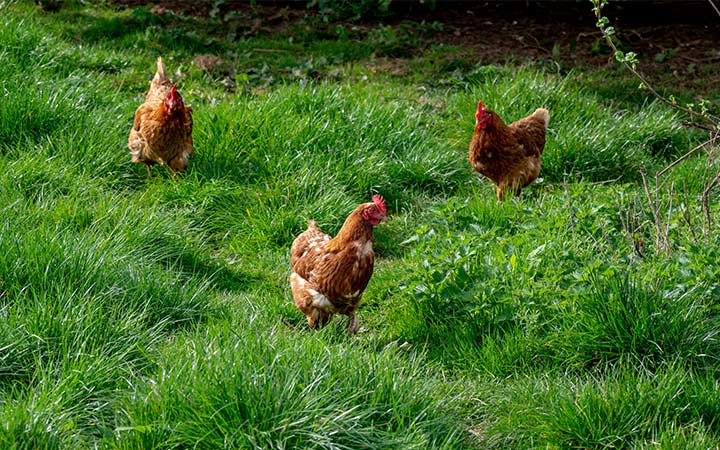Reports show the recent outbreak of Salmonella in Queensland is caused by backyard chickens. This time the Backyard Chickens Salmonella Australia outbreak happened to be Salmonella Typhimurium. A more common strain than last year’s rare Salmonella Enteritidis derived from infected eggs.
The 2020 summer came with 17 cases of Salmonella, 13 of which were children under the age of 11, according to the CDC. Diagnostics show the contamination is likely caused by baby chickens purchased from pet and produce stores across the state. Patrons became sick after the handling of these chicks and from direct contact with their provided habitat.
While the investigation into the stores harboring the infected chicks is ongoing, there’s a lot to understand about the dangers of petting farm animals. Trust me, I understand the appeal of these adorable little fluff balls with chirps that make your heart sing. I am, however, not interested in becoming infected with Salmonella.
So, How Do You Get the Best of Both Worlds?
Easy, the answer is proper hygiene.
I’m clearly not suggesting you can’t enjoy the time with these soft little puffs of cute. I wouldn’t try to stop you. Most likely, I’d join and be willing to battle for a place in line. However, there’s still procedures that are not difficult to follow and will keep you safe after your petting zoo ventures are finished.
If I were to ask you what the simplest action is to prevent contamination, could you answer? I bet you can. Let me lead you there to see if you will get it before I tell you.
Clue #1: Hopefully, you do this all the time in your normal life practices.
Clue #2: It’s likely required for employees to do periodically in order to keep patrons safe.
The final clue: There’s a right way, and a lazy way.
That’s right. You’ve got it.
Just Wash Your Hands
After handling animals, use soap and running water to remove contaminates before you touch your face. You should do this if you have contact with the animal enclosures, as well.
I know it’s difficult not to brush your cheek up against the cheery feathers, but let’s keep animal feces away from your face. What do you say? Good, we’re in agreement on that. This is also something to be aware of if you handle fresh eggs. Clean those hands, my friends. While we’re on the subject of egg, let’s talk about that.
How Do You Know If an Egg Is Still Good to Eat?
- Eggs should be thrown out if they are heavily soiled.
- A powdery substance, or a slime, on the shell means it’s time for the trash.
- If it smells rotten when cracked, don’t eat it.
- A cracked shell is a bad egg.
- For store bought, pay attention to the handy expiration or pack dates.
Anyway, let’s get off the eggs and back to the chickens. I mean, they did come first… At least in this article.
Oftentimes, people purchase baby chickens to raise at home for a fun adventure. I’m not saying that’s a good idea or a bad one. I am thinking that it should not be an impulse buy. No animals should be brought home on the spur of the moment. Have some patience and do the research.
First, you need to look at where your chicks will be raised if you’re considering bringing them home. Will they have the option to roam? Does that option include the run of your house? If it does, that’s a bad idea. It’s not just the chick’s safety that needs to be thought about, but your own. You don’t want feces contaminating where you live. If you happen to touch your face often, like most children do, then its not just your kitchen that you’ll want to keep livestock free and clear of. Anywhere you are likely to occupy in casual living should be a chick-free zone. Really, it should be a farm animal free area all together.
You’ll need to keep chickens in enclosures. That area should be theirs, and you’ll have to follow protocol when you exit. Don’t cuddle with them, wash any infectants away before you track them through your household, and teach your kids the rules as well.
If this sounds like a lot of work, then farm animals aren’t really for you. That’s okay. There are other safe ways to participate in animal baby meet-and-greets. Again, just follow the guidelines listed after those wonderful activities and you’ll be fine.
If it’s a bit too late for this information and you’re starting to feel sick up to 72 hours after exposure, its time to see a doctor. It could be nothing, or you could be infected with Salmonella. The list of symptoms for Salmonella ranges from headaches to fevers, and stomach pains to vomiting. A medical professional will be able to give you a diagnosis as well as monitor your progress.
According to one 2015 study of Australia, there were 90,833 cases of Salmonella included 4,312 hospitalizations, and 19 deaths. These were likely caused by gastroenteritis from Salmonella poisoning. Trends show Salmonella will continue to be a problem. In fact, it has been am issue since we went from nomadic to pastoral.
So, make your foods safe and prevent your backyard chickens from exposing your family to this costly food borne disease – and stay away from the Backyard Chickens Salmonella Australia outbreak.

Comments (0)
No Comments yet